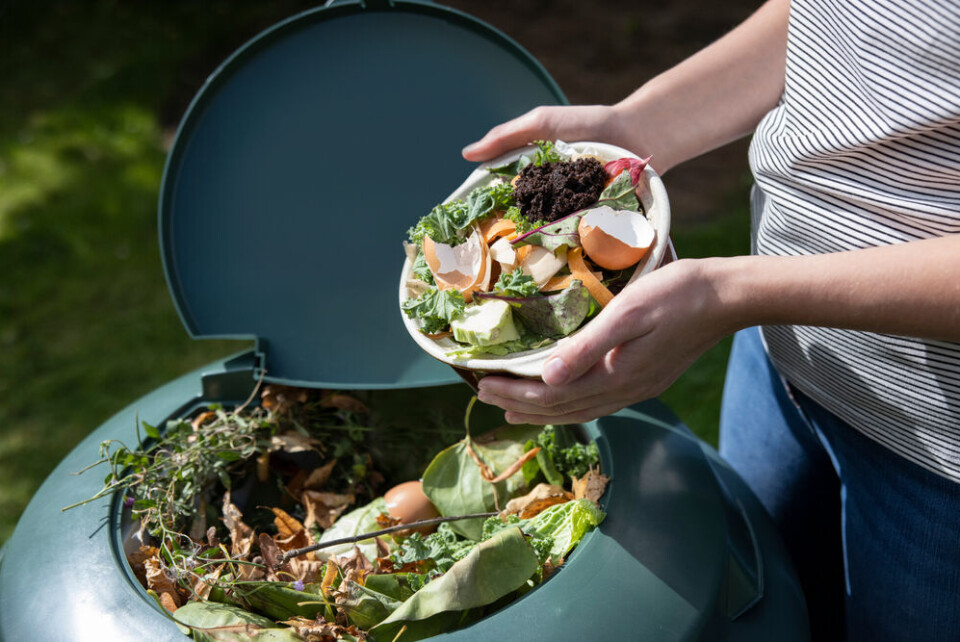-
Mysterious boom rattles residents in south-west France
Local community turns to social media for answers
-
France tightens reimbursement rules for flight delays or cancellations
New measures include mandatory mediation and new claim procedures
-
What snow conditions look like for skiers across French Alps and Pyrenees
Ski resorts are expected to get busier as school holidays begin this weekend
Compost obligation for homes in 2024 in France: how is it advancing?
Organisations fear not all homes will have the right equipment to do this by deadline. We give tips on how to reduce food waste

As of January 1, 2024, all homes in France must have a means of keeping their food waste apart from other rubbish. However 100 days before the law comes into place it appears that only half or a quarter of homes will be ready in time.
Juliette Franquet, director of the Zero Waste France association, said: “we are far [from being ready] and we are very worried”.
She said, in an interview with French news outlet France TV, that there are good examples of cities where composting is already taking place - citing Lorient in Brittany, Besançon in eastern France and Grenoble near the Alps but that many homes will not have the relevant bins to compost food waste by January 1.
Read more: All homes in France must have access to food waste bin from next year
President Emmanuel Macron is set to talk about France’s ecological planning plan on Monday (September 25), building on from the food waste law which was passed in 2020.
However, Ms Franquet noted that the idea of keeping food waste separate from other waste actually dates from the green growth plan voted through in 2015.
She added that food waste is only collected in 100 communes at the moment, equivalent to 6% of the population.
The government meanwhile says 10 million tonnes of food is wasted or lost each year, costing €16billion.
Each person in France throws away around 30kg of food per year, according to France’s ecological ministry, including 7kg still in its packaging.
The law on providing separate food waste collection is designed to combat this although there have been concerns on its implementation.
William Garston, a manager of the ORPI building management company, told media outlet France bleu that he thinks the idea is a “utopia”, not only because it is difficult to set up, but also because “a lot of people don’t want to [take part]. It involves work, you have to take it out [the bin] regularly, people just put whatever inside, cans, plastic”.
Manuel Leick-Jonard, co-ordinator of the citizen compost network in Occitanie, in southern France, reiterated that it is “a nightmare” for organisation.
However, Ms Franquet said that the Italian city of Milan shows that setting up food waste collection in a large city need not be complicated. Milan, and its 1.5 million inhabitants, has collected food waste since 2012, she noted, saving the equivalent of millions of tons in CO2.
She added that currently five million tons of food waste, equivalent to 30% of the rubbish the French throw away, end up being burnt or in the tip, with a significant impact on pollution.
Ms Franquet said that instead, this waste could be used to create energy via fermentation to create biogas, or it could be used as fertiliser.
She cited the department of Haut-Rhin, on the Franco-German border, where some communes have joined together to take the 60kg generated per inhabitant per year and use them in local agriculture.
Read also: Label shows which French supermarkets are fighting food waste
How can I reduce food waste?
-
The most obvious point is to avoid buying too much: Plan meals a week ahead so you know what you need to purchase and how much of it.
-
Look in the fridge and cupboards before you go shopping to avoid buying something twice.
-
When you go shopping make a list and stick to it. Resist promotional offers as they encourage you to buy more than you need.
-
Keep leftovers refrigerated and stored in transparent containers so it is harder to forget what you still have to consume.
-
Be vigilant about expiry dates. Freeze meat and fish that will not be cooked within two days of purchase.
-
Know which fruits should be placed in the refrigerator and which can stay on the counter and ripen
-
Collect dry bread or crusts if no one wants them. You can make croutons or breadcrumbs. Bread pudding is also a delicious way to use up leftover bread.
Read also
How to dispose of different waste items in France
Do not be fooled by ‘compostable’ plastic, says French consumer group
























